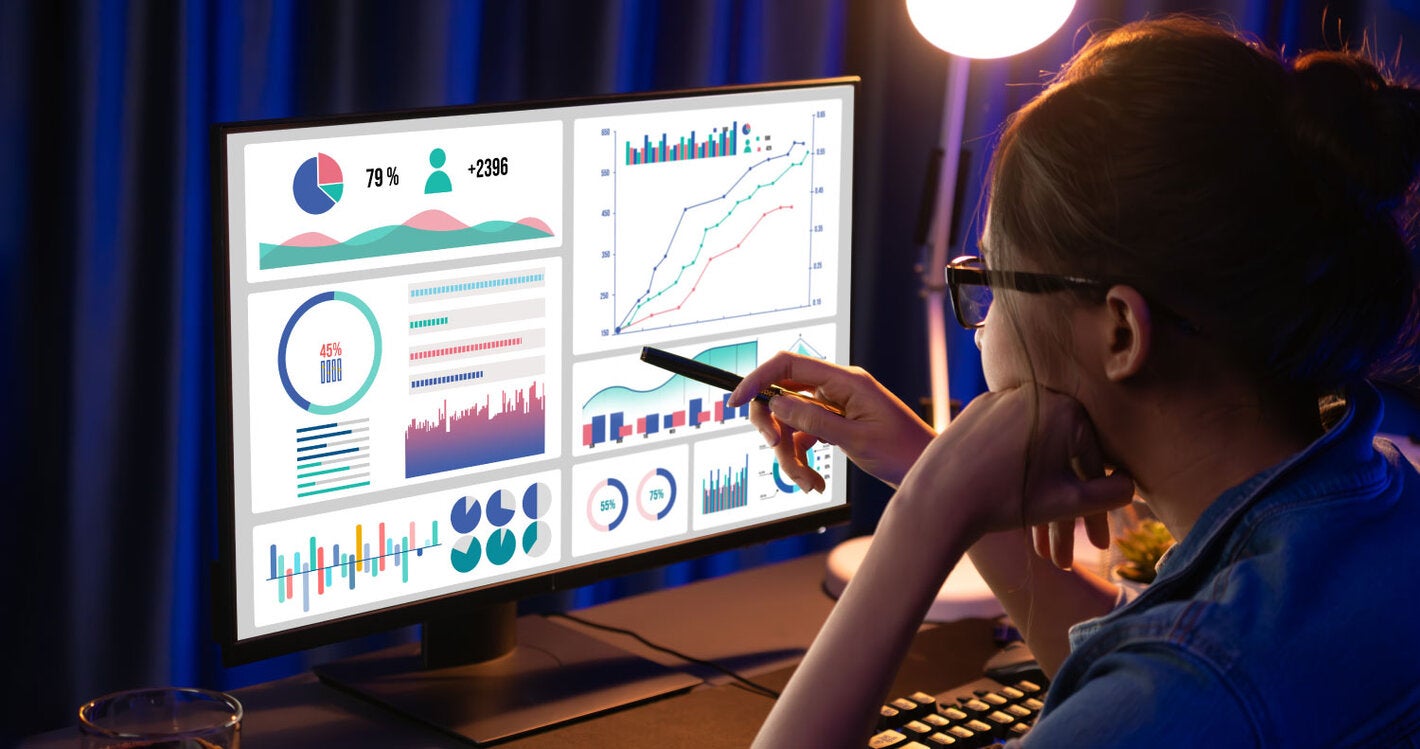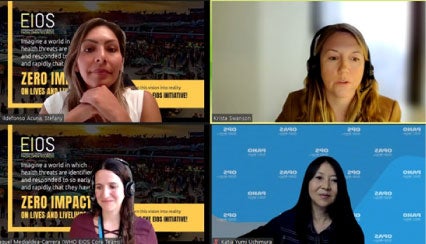
Washington, D.C., March 26, 2024 (PAHO)- The Health Emergency Information and Risk Assessment Unit (HIM) of the PAHO Health Emergencies Department (PHE) jointly with the WHO Pandemic and Epidemic Intelligence Hub organized a Webinar for the EIOS Community, on the Organization's experience in using the Epidemic Intelligence from Open Sources (EIOS) system to conduct public health intelligence (PHI) activities for the Region of the Americas.
The EIOS community involve sub-national and international governmental organizations, as well as non-governmental organizations working to prepare for and respond to health threats. With an all-hazards approach incorporating One Health principles, the EIOS community of practice collaborates across sectors and disciplines to build and strengthen global health security. This includes defining standards, harmonizing activities, and building competencies, capacity and enabling tools. Coming together as one community, pooling our resources, learning from each other’s successes and failures, and building on strengths.
Thus, this webinar allowed professionals involved in public health intelligence (PHI) globally to exchange their experiences and provides an opportunity for EIOS users to interact with and learn from each other. The PAHO team, represented by Krista Swanson and Kátia Uchimura, highlighted the PHI processes using EIOS performed by the Organization, the various information products that are disseminated, and the respective audiences reached, with a goal of achieving early detection and response.
The Open Sources (EIOS) system facilitate the event-based surveillance for the rapid detection and assessment of public health risks by making possible to streamline the processes of collecting and analyzing large amounts of data from different sources in a collaborative environment.
The use of EIOS system by the Health Emergency Information and Risk Assessment Unit and the training activities to strengthen countries capacity on this tool, move the Region forward on the road to enhancing public health intelligence and improving evidence for decision-making resilience to minimize the impact of pandemic and epidemic threats and save lives.




